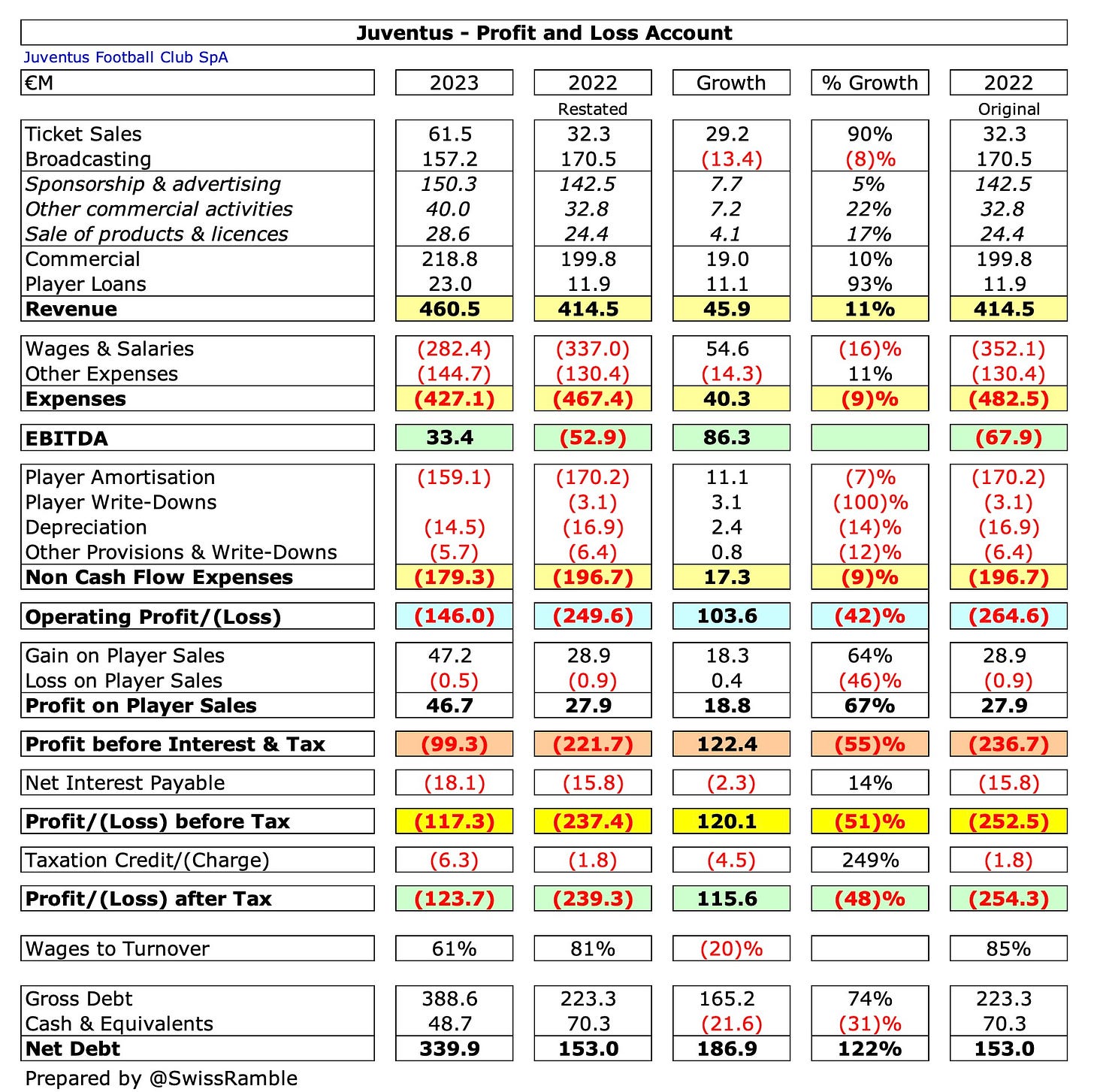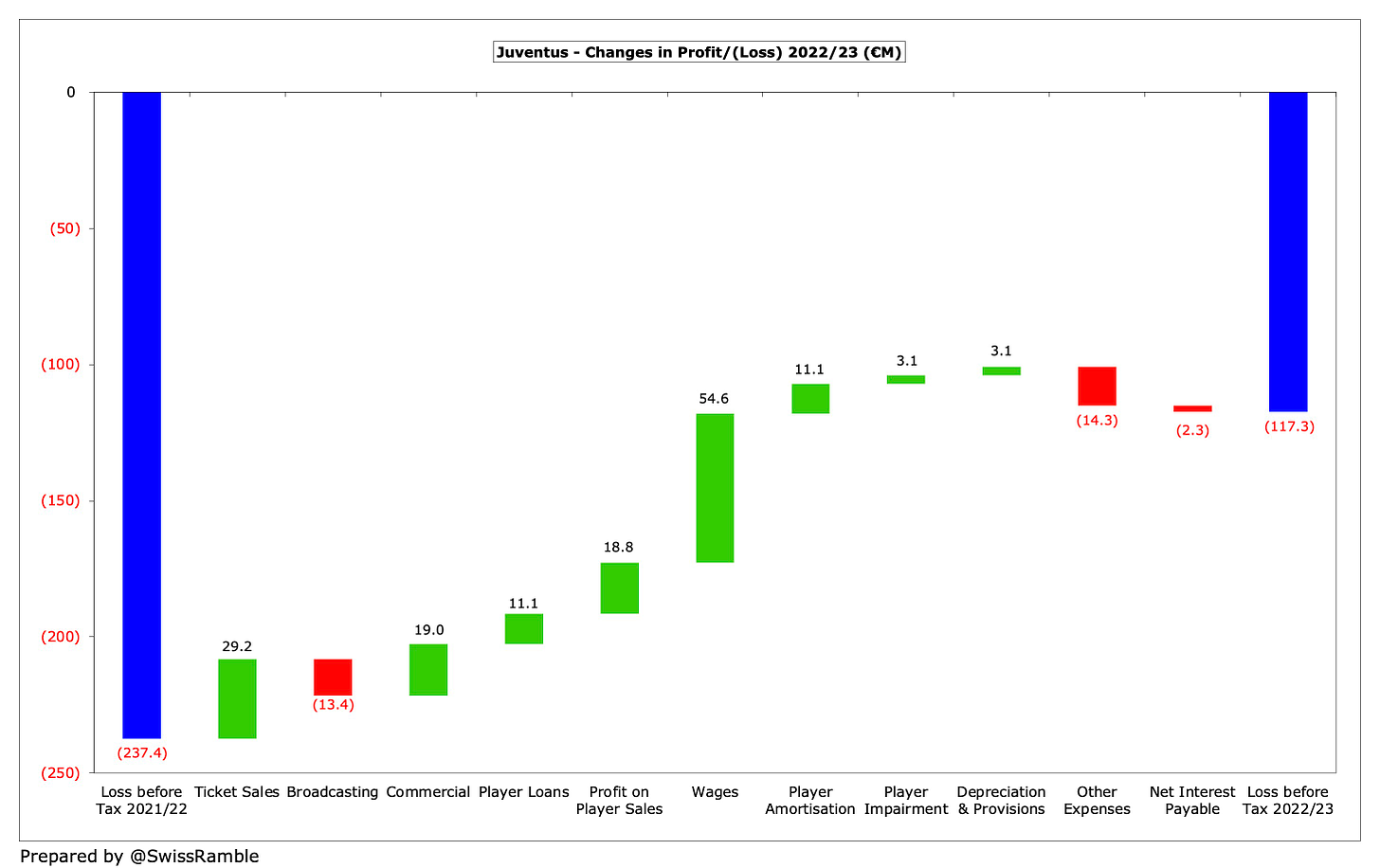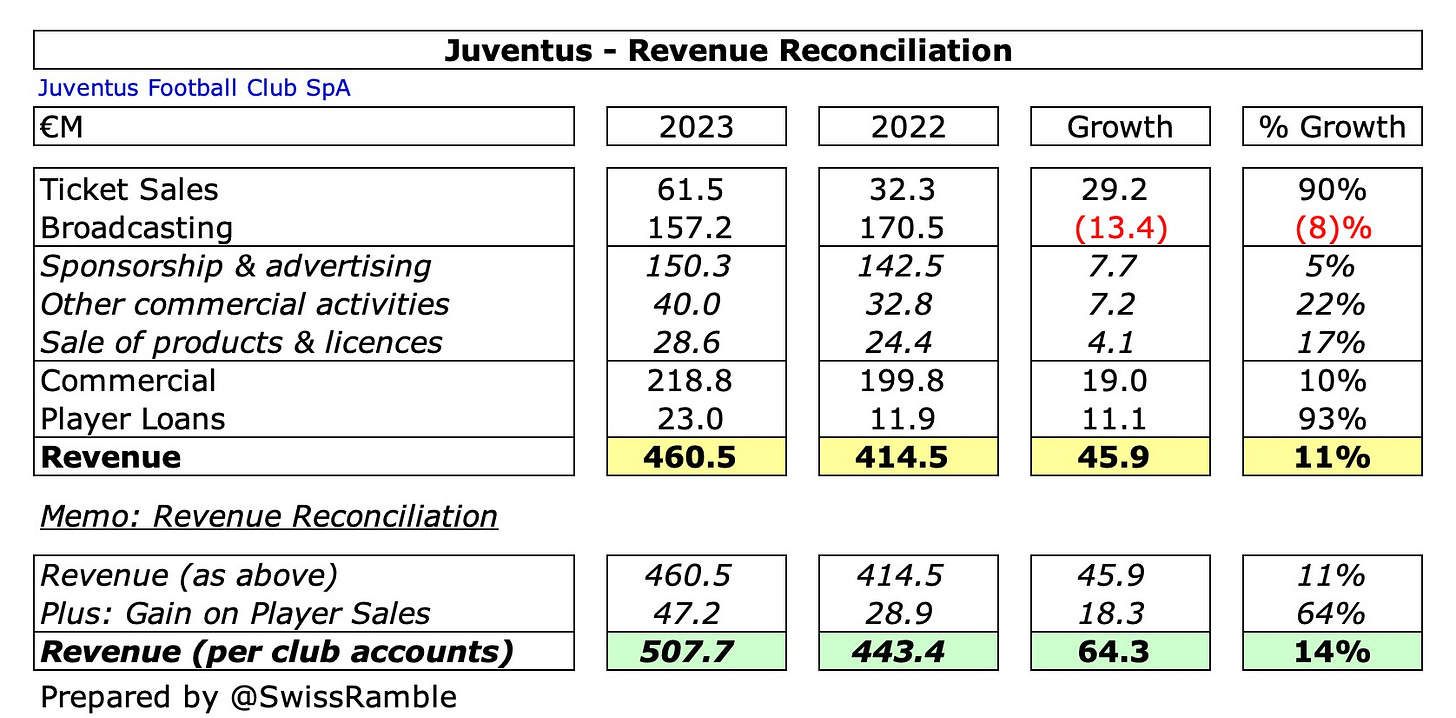Juventus have published their accounts for the 2022/23 season, which was disappointing for a number of reasons. We’ll get round to the finances later, but before that we need to address the veritable plethora of damaging off the pitch issues faced by the “Old Lady”.
Legal Issues
After the Italian Football Federation (FIGC) brought charges against Juventus for financial irregularities, the club’s board of directors resigned, including chairman Andrea Agnelli, vice-chairman Pavel Nedved and chief executive Maurizio Arrivabene.
The club has actually had to deal with two separate legal cases: the first one involved over-stated capital gains via inflated player trading values, while there was also another one with allegations of false accounting involving salary “manoeuvres”.
Transfer Deals
Juventus were accused of boosting profits from player sales (“plusvalenza”) with the FIGC raising concerns about no fewer than 42 transfers. This included swap deals, where both clubs apparently inflated the price to be used in the accounts, so they could each book higher gains.
Salary Manoeuvres
Following huge revenue losses caused by COVID, Juventus announced that their players had given up four months of wages, whereas in reality the club had committed to pay three of those months at a future date.
Accounts Restatement
This resulted in Juventus restating its accounts for two years, increasing the 2020/21 loss by €17m, but reducing the 2021/22 loss by €15m. Most damningly, the FIGC said, “The financial statements are simply not reliable.”
Points Deduction
As a result of these legal issues, Juventus suffered a 10-points penalty, which was enough to drop them from third to seventh in Serie A. Without this points deduction, they would have qualified for the Champions League.
In addition, the club accepted a fine of €718k as part of a plea bargain agreed with the FIGC. This at least drew a line under the scandal, which allowed Juve to move forward without the threat of further sporting sanctions hanging over them.
UEFA Punishment
UEFA also punished Juventus for breaches of the August 2022 settlement agreement by excluding them from Europe in 2023/24 and fining them €20m (though €10m was made conditional, depending on whether the club met future financial targets).
Juve waived their right of appeal, which made sense, as it means they only lose Europa Conference League money this season, as opposed to potentially missing out on the far more lucrative Champions League.
Recent Issues
To add to Juve’s woes, their former star player, Cristiano Ronaldo, has recently taken legal action against the club over €19.5m unpaid wages (linked to the salary manoeuvres case).
And to prove that it never rains, but it pours, Paul Pogba has failed a drugs test, so his Juve career is in the balance, though from a purely financial perspective this could give the club the opportunity to terminate the misfiring French midfielder’s contract with a big salary saving.
Profit/(Loss) 2022/23
Juventus’ 2022/23 accounts cover a season when they finished 7th in Serie A (following the points deduction) and reached the semi-finals of the Coppa Italia. In Europe, they were eliminated at the group stage of the Champions League, dropping down to the Europa League, where they got to the semi-finals.
Their pre-tax loss more than halved from €237m to €117m (€124m after tax), as revenue rose €46m (11%) from €414m to €460m, partly due there being no more COVID impact, while profit on player sales increased €19m (67%) from €28m to €47m.
In addition, operating expenses were cut by €58m (9%), though net interest payable increased €2m (14%) to €18m.
The club noted that the loss would have been further reduced by around €23m without the adverse impact on revenue and costs of the various legal issues, both Italian and international. It quantified the total reduction as €115m, split 20% in 2022/23 and 80% (€92m) in 2023/24.
The removal of all COVID restrictions in the stadium meant that Juventus’ ticket sales increased €29m (90%) from €32m to €61m, while commercial also rose €19m (10%) from €200m to a new club record of €219m. In addition, player loans almost doubled from €12m to €23m.
However, broadcasting fell €13m (8%) from €170m to €157m, mainly due to lower receipts from UEFA competitions.
As a technical aside, this international definition of Juventus’ €460m revenue is different to the one used in the club accounts, which also includes €47m gain on player sales, giving revenue of €508m, which increased €64m (14%) from prior year’s €443m.
Juventus made a great effort to cut costs, as their wage bill dropped a sizeable €55m (16%) from €337m to €282m, while player amortisation (including write-downs) fell €14m (8%) from €173m to €159m. In addition, depreciation/other provisions decreased €3m, but other expenses grew €14m (11%) to €145m.
There are two ways of looking at Juventus’ 2022/23 financial results: on the one hand, there has been a substantial reduction in the deficit; on the other hand, the pre-tax loss was still huge at €117m and also one of the largest in Italy.
Keep reading with a 7-day free trial
Subscribe to The Swiss Ramble to keep reading this post and get 7 days of free access to the full post archives.







